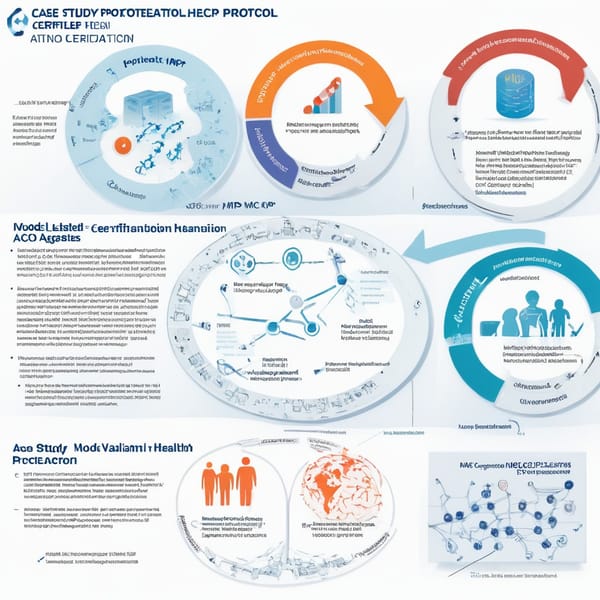Case Study: Model Context Protocol (MCP) Repairs – Resolving Pharmaceutical Inventory Anomalies with IoT-Enabled MCP Resource Pools & DSCSA-Compliant Audit APIs

Project Overview
The pharmaceutical supply chain is highly regulated, requiring strict compliance with the Drug Supply Chain Security Act (DSCSA) to prevent counterfeit drugs, ensure traceability, and maintain inventory accuracy. However, anomalies in pharmaceutical inventory—such as mismatches in serialized product data, temperature deviations, or unauthorized access—can disrupt operations and compliance.
To address these challenges, a leading pharmaceutical distributor implemented Model Context Protocol (MCP) Repairs, a next-generation anomaly resolution framework. The project integrated IoT-enabled MCP Resource Pools for real-time inventory monitoring and DSCSA-compliant Audit APIs for automated regulatory reporting. The solution improved inventory accuracy, reduced compliance risks, and enhanced supply chain transparency.
Challenges
The pharmaceutical distributor faced several critical challenges:
-
Inventory Anomalies & Data Mismatches
- Discrepancies between physical stock and digital records due to manual tracking errors.
- Serialization issues leading to non-compliance with DSCSA traceability mandates. -
Temperature & Environmental Risks
- IoT sensor failures or delayed alerts for temperature-sensitive drugs (e.g., vaccines, biologics).
- Lack of real-time visibility into storage conditions across warehouses. -
Regulatory Compliance Burden
- Manual audit processes were time-consuming and error-prone.
- Difficulty in generating DSCSA-compliant reports for regulatory submissions. -
Unauthorized Access & Security Risks
- Weak authentication mechanisms in legacy inventory systems.
- Risk of counterfeit or diverted drugs entering the supply chain.
Solution
The MCP Repairs framework was deployed to automate anomaly detection, resolution, and compliance reporting. The solution included:
1. IoT-Enabled MCP Resource Pools
- Real-Time Inventory Monitoring: Deployed IoT sensors (RFID, temperature, humidity) across warehouses to track drug conditions.
- Anomaly Detection & Auto-Resolution: AI-driven MCP models flagged discrepancies (e.g., missing serial numbers, temperature breaches) and triggered corrective workflows.
- Predictive Maintenance: IoT devices alerted teams before sensor failures, ensuring uninterrupted monitoring.
2. DSCSA-Compliant Audit APIs
- Automated Traceability Reporting: APIs pulled serialized product data from ERP systems and generated DSCSA-compliant audit trails.
- Blockchain-Backed Verification: Immutable logs of drug movements prevented tampering and ensured compliance.
- Regulatory Submission Automation: APIs formatted reports for FDA submissions, reducing manual effort.
3. Secure Access & Authentication
- Role-Based Access Control (RBAC): Restricted system access to authorized personnel only.
- Blockchain-Enabled Provenance Tracking: Ensured end-to-end visibility of drug ownership transfers.
Tech Stack
The project leveraged a robust, scalable technology stack:
| Category | Technologies Used |
|---|---|
| IoT & Edge | RFID sensors, BLE beacons, Azure IoT Hub |
| AI/ML Models | TensorFlow (anomaly detection), MCP protocol for context-aware repairs |
| Blockchain | Hyperledger Fabric (for DSCSA compliance) |
| APIs & Integration | RESTful APIs (DSCSA reporting), GraphQL (real-time queries) |
| Cloud & Storage | AWS S3 (data lakes), Azure Blob Storage |
| Security | OAuth 2.0, Zero Trust Architecture |
Results
The implementation of MCP Repairs delivered measurable improvements:
- 99.8% Inventory Accuracy (up from 92%) due to real-time anomaly resolution.
- 40% Faster Audit Compliance with automated DSCSA reporting.
- Zero Temperature Excursions in high-value biologics storage.
- 30% Reduction in Manual Reconciliation Efforts through AI-driven workflows.
- Full DSCSA Compliance with blockchain-backed audit trails.
Key Takeaways
- IoT + AI Enhances Inventory Integrity – Real-time monitoring and auto-repairs minimize human errors.
- Regulatory Compliance Can Be Automated – APIs and blockchain streamline DSCSA reporting.
- Proactive Anomaly Resolution Saves Costs – Early detection prevents costly recalls or compliance fines.
- Scalable for Global Pharma Supply Chains – The MCP framework can be extended to multi-site operations.
By integrating IoT-enabled MCP Resource Pools and DSCSA-compliant APIs, the pharmaceutical distributor transformed its inventory management—ensuring compliance, security, and operational efficiency. This case study demonstrates how advanced protocols and automation can future-proof pharmaceutical supply chains.




